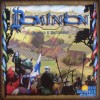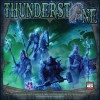profile badges
recent achievements

Amateur Grader
Grade 10 more reviews or tips by clicking "Yes" or "No" in response to the question "Was this helpful?"
Grade 10 more reviews or tips by clicking "Yes" or "No" in response to the question "Was this helpful?"

My First Game Tip
Submit a game tip, strategy, or house rule.
Submit a game tip, strategy, or house rule.

Gave My First Grade
Grade a gamer's review or tip by clicking "Yes" or "No" in response to the question "Was this helpful?"
Grade a gamer's review or tip by clicking "Yes" or "No" in response to the question "Was this helpful?"

My First Favorite!
Add a game to your list of Favorites by clicking the "Favorite" button on a game page.
Add a game to your list of Favorites by clicking the "Favorite" button on a game page.










Brass
Taking place in the industrial revolution in England, Brass immerses the players in the role of budding Industrial giants. Individual businesses, transportation networks, and personal fortunes rise and fall as England races towards modernization. As the modern age dawns, the player who has best laid the groundwork of a vast business empire will ride into the future with vast sums of money, winning the game.
From the winning condition of the game, it is important to note that the winning condition isn’t necessarily having the most money, taking this out of the genre of a pure economic game. Rather, the purpose of the game is to have the largest industrial footprint on the map, to be the most influential tycoon. Preparing for the future is the theme which carries the game forward. This theme is driven in not only by the winning condition, but through the idea of two “ages” in the game, the loan system, and the importance of balancing an empire on the point of disaster to emerge stronger down the road.
Mechanically, cards drive Brass. This might be a critical flaw for players that cannot stand an element of chance in a 2-3 hour heavy strategic game, and I will warn those players away from this game. For those who do not mind this so much, it adds a great amount of re-playability a game which might otherwise be too rigid to be interesting. The cards drive the central actions of the game which are:
– Establish an industry
– Take a loan
– Develop towards more advanced industries
– Ship cotton
– Build canals/rails
These actions are taken by playing a card, two per turn. Most of which are in a player’s hand at the beginning of each of the two ages (canal and rail). These cards, not money, are the real currency of the game to experienced players. Once an action is taken, a new card is drawn until the deck is exhausted, at which point no further loans may be taken. Remaining cards are then played until none are left, advancing the game to the next age or ending the game. Without getting into too much detail, each card imposes limits on where an industry may be established. This makes forward-planning and hand management a critical aspect of the game; players must tactically react to opportunities which arise through game-play, but largely adhering to a strategy is necessary to do well. To allow opportunistic play, two cards may be played to take any action, ignoring limitations.
To establish a business, a player has two options:
– Play a card of the city the new business is to be established in.
– Play a card of the specific industry in any city only if the player’s transportation network is connected to it.
These limitations of what businesses can be established and where are the source of the hand management in the game. Useful cards must be coveted, while others may be dumped on all other actions. Further, the map of England has limitations, as seen on the icons on the map, of what types of businesses may be established in each city, and how many of each. Finally, businesses must be paid for with cash and connected resources (iron and coal).
Once a business is established, it must establish itself in the existing economy and become profitable before it advances a player towards victory. Cotton must be shipped to either the foreign market or in the local ports. Ports must establish regular clients from the cotton industry. Coal mines and iron works must establish customers which use the resources they provide. Successfully maturing a business will provide a player with extra income and victory points.
Finally, transportation networks connect these industries, opening the means to ship goods to potential clients. Cotton and coal cannot travel outside of their source city without a player having invested in the infrastructure to move it in large quantity. Iron, because it represents a one-shot building expenditure rather than a constant series of shipments, does not suffer the same limitation and may move freely about the map.
I mentioned before that the game has two ages. Once the beginning canal phase is completed, all canals are removed from the game, as are obsolete businesses. More advanced businesses remain on the board, setting the terrain for the second age to begin. Wise players will have prepared themselves for this transition and quickly extend vast rail networks. Still others may have created several coal mines at the end of the canal age to provide these rail tycoons (or themselves) with the means to create a rail empire.
Through the mechanisms of establishing industries, building infrastructure, and establishing profit, the players will create a functioning economy. The players will both compete and cooperate by finding niches in the supply and demand cycles that arise. If other players are competing in cotton mills, for instance, a player may wish to invest in ports to provide a means for them to ship their products. It’s this interaction that makes Brass great.
While this is hardly an exhaustive list of the rules of Brass, it provides enough framework to get a general idea of how the game flows. The historical immersion of Brass is surprisingly rich as players witness the interactions of their business empires creating a living, breathing economy. By finding niches, seizing opportunities, interacting with competitors, and sticking to his guns, a player will find themselves on top.